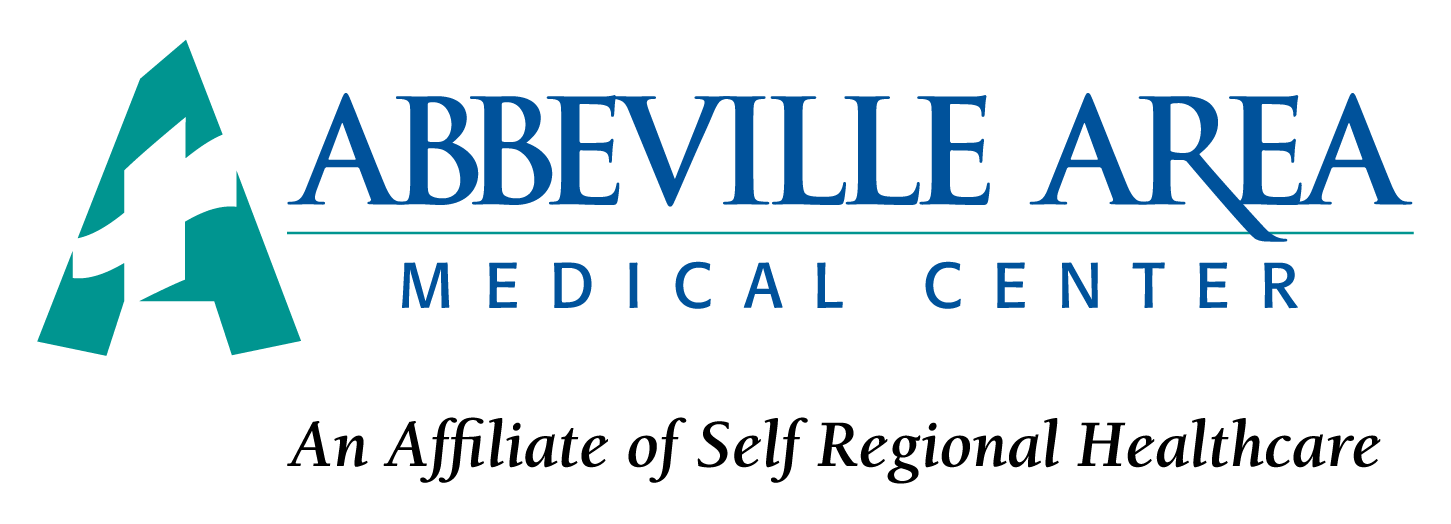Advance care planning is not something to wait to think about late in life. A medical crisis could leave anyone—young or old—too sick to make healthcare decisions. Even if you are not ill now, making healthcare plans for the future is an important step toward making sure you get the medical care you would want, even when doctors and family members are making the decisions for you. Advance care planning involves learning about the types of decisions that might need to be made, considering those decisions ahead of time, and then letting others know about your preferences.
Advance Directives
The federal government requires that all hospitals provide their patients with information about advance directives. Advance directives are documents that allow you to state the medical care you would or would not like to receive “in advance” should you become unable to make decisions for yourself. There are two types of legal documents—Living Will and Healthcare Power of Attorney.
A Living Will is a document that states your wishes about what medical treatment you would want should your doctor determine that you are permanently unconscious or terminally ill with short life expectancy. Your will is a separate document that tells your survivors what to do with your property and resources after your death. Click here for more information about Living Wills.
A Healthcare Power of Attorney is a document that allows you to name another person to make decisions about your care if you become temporarily or permanently unable to make decisions for yourself. If you want to name someone to make healthcare decisions for you, you should sign a healthcare power of attorney no matter what other documents you have. Click here for more information about Healthcare Power of Attorney.
Contact the Case Management Department at 864-366-3264 for additional information.
Living Wills
A Living Will is a document that states your wishes about what medical treatment you would want should your doctor determine that you are permanently unconscious or terminally ill with short life expectancy. Frequently asked questions about Living Wills:
Is a “Living Will” the same as a “Last Will and Testament?”
No. Your Last Will and Testament is a separate document that tells your loved ones what to do with your property and resources after your death. A Living Will gives direction about life support treatment—the treatment you want and when you want it stopped.
Where can I get a living will form in South Carolina?
The living will form most commonly used in South Carolina is called a “Declaration of a Desire for a Natural Death.” You can request one from the following organizations or from the hospital’s Case Manager.
SC Commission on Aging: 803-735-0210
Joint Legislative Commission on Aging: 803-734-2995
Governor’s Office, Ombudsman Division: 803-734-0457
When would my living will take effect?
It would become effective when two doctors determine that you are permanently unconscious or that your death will occur in a short period of time. In South Carolina, permanently unconscious” means that you are in a permanent vegetative state in which your body continues to function but your mind does not. This is different from a coma, because a person in a coma usually wakes up, while a permanently unconscious person will not.
What are the requirements for signing a living will?
You must be at least 18 years old, and you must be competent. At least two persons and a notary public must act as witnesses when you sign the document. If you sign a living will while you are a patient in a hospital or a resident in a nursing home, a representative from the Governor’s Office called an ombudsman must be called and be present when you sign.
What else should I know about completing the living will form?
You should be sure to state on the form whether you want tube feeding. If you would like to, you can name someone who can revoke or enforce your living will.
What if I am pregnant?
South Carolina law provides that your living will is not effective while you are pregnant.
What if I change my mind after I have signed a living will?
You may revoke a living will at any time while you are competent. There are five simple ways to do so, all of which are explained on the living will form. You must also tell your doctor that you have revoked your living will.
Should I consider signing both a healthcare power of attorney and a living will?
Yes, because each document has advantages that are not available from the other. A healthcare power of attorney allows the person of your choice to decide, after considering all of the facts, what you would want under the circumstances.
If I do not have a healthcare power of attorney or a living will, who will make healthcare decisions for me?
If you are unable to make healthcare decisions, South Carolina law chooses persons who can make those decisions for you, or the courts may be called upon to make the decisions or to appoint someone else to make them. If you want to be sure the person who makes decisions for you is familiar with your wishes, you should appoint an agent in a healthcare power of attorney.
Are healthcare power of attorneys and living wills that were signed in another state valid in South Carolina?
If you have signed a healthcare power of attorney in another state, you should have it reviewed by a lawyer to be sure it is valid in South Carolina. A living will that is valid in another state will probably be accepted in South Carolina. To be safe though, you should sign the living will form approved by the South Carolina legislature.
What if I have an old living will?
On June 21, 1991, South Carolina adopted a new living will form. If you signed a living will in South Carolina prior to June 12, 1991, it is still valid. However, the old form does not say anything about permanent unconsciousness and does not allow tube feeding to be withheld in most situations. If you signed a living will in South Carolina prior to June 12, 1991, you should consider signing a new living will form.
For more information, you may contact our Case Management Department at 366-3264.
Healthcare Powers of Attorney
A Healthcare Power of Attorney is a document in which you give another person (your agent) the power to make decisions about your care. If you want to name someone to make healthcare decisions for you, you should sign a healthcare power of attorney no matter what other documents you have. Frequently asked questions about a Healthcare Power of Attorney:
How is a healthcare power of attorney different from a normal power of attorney?
A healthcare power of attorney is a document in which you give another person (your agent) the power to make decisions related to your care. A normal power of attorney gives a person the power to make decisions about your money, property or business transactions. A normal power of attorney, however, will not necessarily allow your agent to make healthcare decisions for you. If you want an agent to be able to make healthcare decisions for you, you should sign a healthcare power of attorney no matter what other documents you may have. If you want an agent to make decisions about money, you will need a different power of attorney.
Whom should I appoint as my agent? What if my agent cannot serve?
You should appoint a person you trust and who knows how you feel about healthcare. You should also name an alternate in case your agent is unwilling or unable to serve. You should talk to the persons you choose as your agent and alternate to be sure they are willing to serve, and so that they know how you feel about healthcare.
Why should I sign a healthcare power of attorney?
You may become unable to make healthcare decisions for yourself. You can name the person who will make these decisions for you by signing a healthcare power of attorney. Through this person, you can make sure you continue to control your own healthcare. Without such a document, the courts may be called upon to make the decisions or to appoint another person to make them.
What can I authorize an agent to do for me in a healthcare power of attorney?
You can authorize your agent to make healthcare decisions for you in case you become unable to make decisions for yourself. In your healthcare power of attorney, you may tell your agent that you do or do not want blood transfusions, life support, CPR, feeding tubes, dialysis, etc.
What are the requirements for signing a healthcare power of attorney?
At least two persons must sign the document as witnesses when you sign it. Only one hospital employee can serve as a witness. Information is listed on the document about who can or cannot serve as a witness. You do not have to record your healthcare power of attorney for it to be valid.
What if I change my mind?
You can revoke your healthcare power of attorney at any time while you are competent by informing your agent or doctor that you have changed your mind.
Where should I keep my healthcare power of attorney?
Keep the original in a safe place where your family members can get it. You should also give a copy to as many of the following persons you are comfortable with: family members, physician, attorney, minister, priest or clergyman, agent. Do not put your only copy of these documents in your safe deposit box.
Should I consider signing both a healthcare power of attorney and a living will?
Yes, because each document has advantages that are not available from the other. A healthcare power of attorney allows the person or agent of your choice to decide, after considering all of the facts, what you would want under the circumstances.
If I do not have a healthcare power of attorney or a living will, who will make healthcare decisions for me?
If you are unable to make healthcare decisions, South Carolina law chooses persons who can make those decisions for you, or the courts may be called upon to make the decisions or to appoint someone else to make them. If you want to be sure the person who makes decisions for you is familiar with your wishes, you should appoint an agent in a healthcare power of attorney.
Are healthcare power of attorneys and living wills that were signed in another state valid in South Carolina?
If you have signed a healthcare power of attorney in another state, you should have it reviewed by a lawyer to be sure it is valid in South Carolina. A living will that is valid in another state will probably be accepted in South Carolina. To be safe though, you should sign the living will form approved by the South Carolina legislature.
What if I have an old healthcare power of attorney?
In May, 1992, South Carolina approved a standard healthcare power of attorney form. If you filled out
your healthcare power of attorney form before that date, you may want to sign the revised form which
has a few small changes.
For more information, you may contact our Case Management Department at 366-3264.
What if I have an old healthcare power of attorney?
In May, 1992, South Carolina approved a standard healthcare power of attorney form. If you filled out your healthcare power of attorney form before that date, you may want to sign the revised form which has a few small changes.
For more information, you may contact our Case Management Department at 366-3264.

